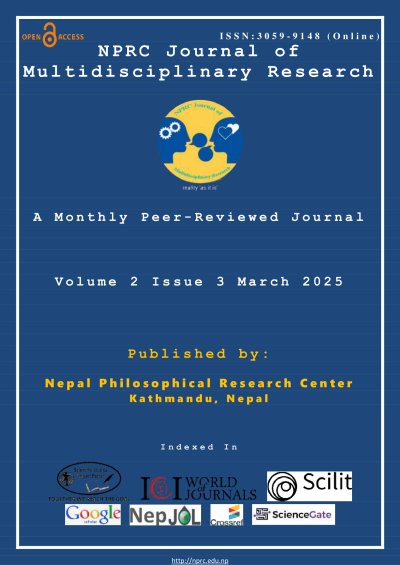Grounded Methodology: Recent Trends and Approaches
DOI:
https://doi.org/10.3126/nprcjmr.v2i3.76965Keywords:
Grounded Theory, research, big changes, mixed methods, digital tools, data analysisAbstract
Grounded Theory (GT) has evolved significantly since its introduction in the 1960s by Glaser and Strauss, adapting to modern-day needs and implications in qualitative research. In this context, this paper follows a systematic review method and offers a critical approach. Grounded Theory was initially conceived to develop theories from empirical data, but these days, it includes heavily hybrid perspectives that add capabilities for interpretive praxis. In addition, processing large datasets with digital technologies has improved the complexity of analyzing data, which has a greater scope to capture and theorize within grounded methodology. The paper also discusses these evolutions and emphasizes that Grounded Theory has become diverse in both theory and practice, which calls for discovering and employing different tools and strategies. The paper concludes that a critical research gap exists in allowing truly universal, evidence-based theoretical models of grounded methods that can contribute to advanced social sciences research.
Downloads
Downloads
Published
How to Cite
Issue
Section
License
Copyright (c) 2025 The Author(s)

This work is licensed under a Creative Commons Attribution-NonCommercial 4.0 International License.
This license enables reusers to distribute, remix, adapt, and build upon the material in any medium or format for noncommercial purposes only, and only so long as attribution is given to the creator.





